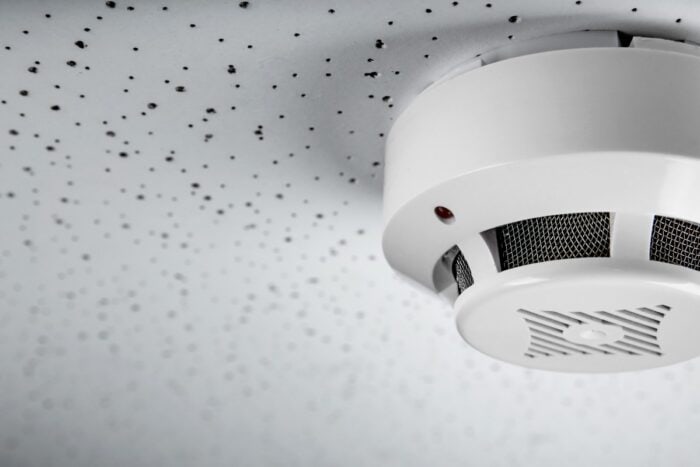There are regulations that govern the responsibilities you have regarding smoke alarms and CO2 alarms for your tenants, so we’ve put this article together to help you understand what it is your duty as a landlord to provide to ensure the safety of your tenants.
Keeping your tenants safe should be the utmost priority for any landlord, not least of all because it’s a legal responsibility to provide a safe home in which people can live. If you rent out homes in the private rental sector, here is an essential guide to your responsibilities as a landlord and that of your tenants once the tenancy is underway.
Understanding the Importance of Smoke and CO2 Alarms for UK Landlords
Ensuring the safety and wellbeing of tenants is a paramount responsibility for landlords in the UK’s private rental sector. Among these responsibilities, the installation and maintenance of smoke and carbon monoxide (CO2) alarms are of critical importance. This guide aims to shed light on the legal requirements and best practices concerning these life-saving devices, targeting property managers, landlords, and tenants keen on upholding safety within their properties.
The Legal Landscape for Smoke and Carbon Monoxide Alarms
In England, the regulations set forth under the Smoke and Carbon Monoxide Alarm (England) Regulations 2015, provide a solid foundation for the responsibilities of landlords regarding fire and carbon monoxide safety. These rules stipulate that landlords must:
- Install at Least One Smoke Alarm on every habitable storey: Every floor of the property being used as living accommodation must be equipped with a working smoke alarm. This ensures early detection and warning to occupants in case of a fire.
- Install a Carbon Monoxide Alarm in any Room close to an appliance that burns fuel to provide heat. This includes rooms with coal fires , wood-burning and solid fuel stoves, together with gas boilers where gas is burnt to provide heat. Gas cookers are excluded.
- Ensure Alarms are in Working Order at the Start of Each New Tenancy: Initial testing is the landlord’s responsibility and this should be recorded, but on-going testing should be encouraged among tenants.
It’s worth at this point also highlighting the difference in legal requirements across the UK, as regulations in Scotland and Wales have their nuances, generally requiring carbon monoxide and interlinked smoke detectors in a broader range of scenarios together with a heat alarm in the kitchen. In Wales the requirement is for interlinked hard-wired alarms.
Contact Bricknells Rentals 01709 365584 for more details on the specifics of your area.
Strategic Placement of Alarms
Understanding where to place smoke and CO2 alarms within a property is key to maximising their efficacy:
- Smoke Alarms: Ideally, these should be installed on the ceiling, in the middle of a room, or in hallways and landings to ensure the sound carries throughout the property. Avoid installing smoke alarms near kitchens or bathrooms as steam can trigger false alarms.
- Carbon Monoxide Alarms: These should be placed at head height, around 1 to 3 meters away from potential sources of carbon monoxide, such as boilers and stoves. Do not place them behind furniture, curtains, or in enclosed spaces that could hinder detection.
Maintenance and Testing
Routine maintenance is crucial for ensuring alarms remain functional:
- Monthly Testing: Encouraging tenants to test alarms monthly can help identify and rectify any issues promptly. It is worth taking the time when checking in your tenants to outline the importance of this task and that they do not remove the batteries.
- Battery Replacement: While many modern alarms have long-life batteries, those that do not should have their batteries replaced annually, at the very least.
- Regular Inspections: Visual inspections during property maintenance visits can help ensure alarms are not obstructed and remain in good working order.
Compliance and Penalties
Non-compliance with these regulations can expose landlords to significant penalties and fines. Therefore, it is in the best interest of landlords to not only complying with the minimum legal standards but to exceed them where possible to ensure the utmost safety of their tenants.
Conclusion
Smoke and CO2 alarms are more than just legal requirements; they are critical components of tenant safety. By understanding and adhering to the regulations, and adopting a proactive approach to alarm maintenance, UK landlords can provide safer living environments, protect their investments, and foster positive relationships with their tenants. For a safer future, the importance of these devices cannot be overstated.
Contact Us
If you are a landlord looking to find out more about any of our services, please get in touch. You can call us to request a free landlord’s pack or to further discuss our property management services, investment opportunities and more. Email us on enquiries@bricknells-rentals.co.uk or call us on 01709 365584.

